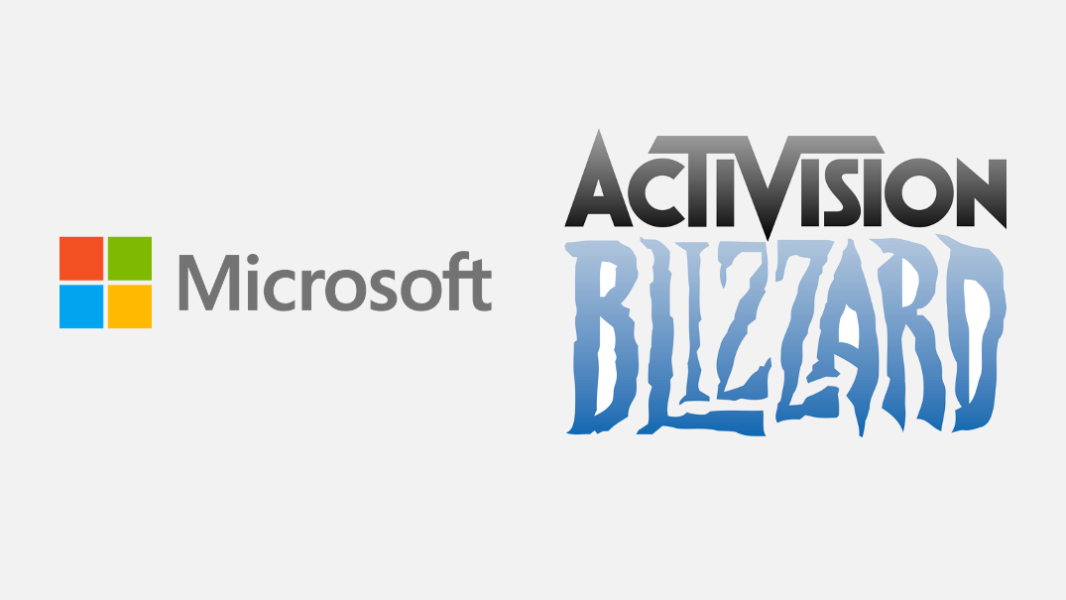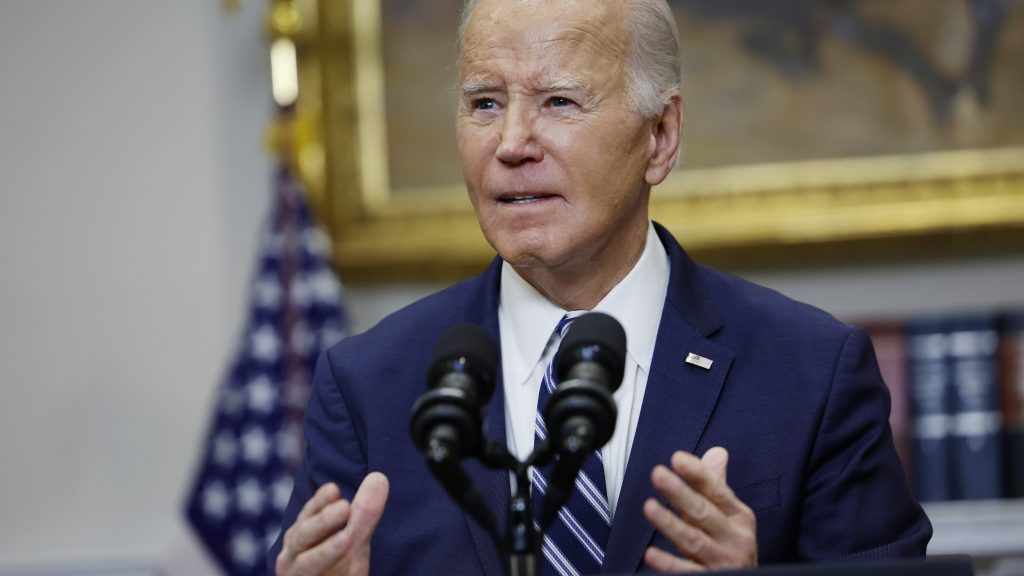FTC Appeals Activision Blizzard Acquisition: Implications For Gaming

Table of Contents
The FTC's Arguments Against the Acquisition
The FTC's opposition to the Microsoft-Activision Blizzard merger rests on concerns about anti-competitive behavior and the potential for market dominance.
Concerns Regarding Anti-Competitive Behavior
The FTC argues that the merger would stifle competition, significantly impacting the gaming market. Their key concerns include:
- Call of Duty Exclusivity: The FTC fears that Microsoft could make Call of Duty exclusive to Xbox consoles and its Game Pass subscription service, severely harming competitors like PlayStation and Nintendo. This could lead to a significant loss of market share for these platforms.
- Reduced Competition: The merger would combine two major players in the gaming industry, potentially leading to reduced competition, higher prices, and less innovation. The FTC argues this consolidation of power could create an unfair advantage for Microsoft.
- Impact on Game Pricing and Innovation: With less competition, the FTC believes Microsoft could raise prices for games and reduce the incentive for innovation, ultimately harming consumers. The argument focuses on the potential for a monopolistic environment that stifles creative development. Keywords: Antitrust, Monopoly, Competition, Call of Duty Exclusivity
The Role of Game Streaming and Cloud Gaming
The FTC's concerns extend beyond traditional console gaming to the rapidly growing cloud gaming market. They argue:
- Call of Duty and Cloud Gaming Dominance: Microsoft's control over Call of Duty could give them an unfair advantage in the cloud gaming market. They could leverage this to lock out competitors or make their services less attractive.
- Impact on Rival Streaming Platforms: The FTC fears that Microsoft could use its market power to disadvantage rival streaming platforms, potentially hindering innovation and choice for consumers. This could limit access to a wider range of games and potentially drive up prices for streaming services.
- Market Dominance in Cloud Gaming: The merger could give Microsoft an insurmountable lead in the burgeoning cloud gaming market, limiting competition and stifling innovation in this crucial sector. Keywords: Cloud Gaming, Game Streaming, Xbox Cloud Gaming, Market Dominance
Microsoft's Defense and Counterarguments
Microsoft has vigorously defended the acquisition, emphasizing its commitment to maintaining Call of Duty availability and highlighting the potential benefits of the merger.
Microsoft's Commitment to Maintaining Call of Duty Availability
Microsoft has repeatedly pledged to keep Call of Duty available on PlayStation and other platforms, even signing legally binding agreements. However:
- Credibility of Promises: The FTC questions the long-term credibility of these promises, arguing that Microsoft could easily renege on its commitments after the acquisition is complete.
- Potential for Future Disputes: Even with signed agreements, future disputes regarding Call of Duty's availability are possible, leading to uncertainty and potential legal battles. This creates a lasting concern for competitors and consumers alike.
- Cross-Platform Play: While Microsoft emphasizes cross-platform play, concerns remain about the potential for future limitations or unequal access to features across different platforms. Keywords: Call of Duty, PlayStation, Cross-Platform Play, Game Availability
Arguments for the Benefits of the Acquisition
Microsoft argues that the acquisition will benefit gamers by:
- Improved Game Development and Technology: Microsoft claims the merger will lead to advancements in game development, improved graphics, and more innovative gaming experiences.
- Increased Innovation: They contend that the combined resources of Microsoft and Activision Blizzard will accelerate innovation within the gaming industry, benefiting consumers with new and exciting games.
- Economic Growth: Microsoft emphasizes the potential economic benefits of the merger, including job creation and investment in the gaming sector. Keywords: Innovation, Game Development, Technological Advancements, Economic Growth
Potential Outcomes and Implications for the Gaming Industry
The FTC appeal's outcome holds significant implications for the future of the gaming industry.
Scenarios Following the FTC Appeal
Several scenarios are possible:
- FTC Victory: The FTC could successfully block the acquisition, setting a significant precedent for future mergers and acquisitions in the gaming industry.
- Microsoft Victory: Microsoft could prevail, allowing the merger to proceed, potentially leading to increased consolidation in the gaming market.
- Negotiated Settlement: A compromise could be reached, with Microsoft agreeing to concessions to address the FTC's concerns. Keywords: Legal Precedent, Merger Regulations, Antitrust Law, Gaming Industry Regulation
Long-Term Effects on Game Pricing, Development, and Innovation
The outcome will likely impact:
- Game Pricing: Increased consolidation could lead to higher game prices, impacting consumers' spending power.
- Game Development: The merger could influence the types of games developed, potentially favoring certain genres or platforms.
- Innovation: Reduced competition might hinder innovation, limiting the variety and quality of games available to consumers. Keywords: Game Pricing, Game Development, Innovation, Consumer Protection
Conclusion:
The FTC's appeal of the Microsoft-Activision Blizzard acquisition is a landmark case with significant implications for the future of gaming. The outcome will shape the regulatory landscape for future mergers and acquisitions, potentially impacting competition, game pricing, and innovation. The arguments presented by both sides highlight the complex interplay between business interests and consumer welfare in the rapidly evolving gaming market. Understanding the nuances of this FTC Activision Blizzard Acquisition case is crucial for anyone interested in the future of the gaming industry. Stay informed about further developments and continue to follow the unfolding legal battle for its crucial impact on the gaming world.

Featured Posts
-
 Crazy Rich Asians Tv Adaptation Cast Plot And Release Date Speculation
May 12, 2025
Crazy Rich Asians Tv Adaptation Cast Plot And Release Date Speculation
May 12, 2025 -
 Did Benny Blanco Cheat Examining The Theresa Marie Allegations And Fan Reactions
May 12, 2025
Did Benny Blanco Cheat Examining The Theresa Marie Allegations And Fan Reactions
May 12, 2025 -
 Tennessee Volunteers Defeat Lsu Tigers In Series Evenning Win
May 12, 2025
Tennessee Volunteers Defeat Lsu Tigers In Series Evenning Win
May 12, 2025 -
 The Papacy After Francis Exploring The Profiles Of Potential Successors
May 12, 2025
The Papacy After Francis Exploring The Profiles Of Potential Successors
May 12, 2025 -
 Injury Report Chicago Bulls And New York Knicks Game Preview
May 12, 2025
Injury Report Chicago Bulls And New York Knicks Game Preview
May 12, 2025
